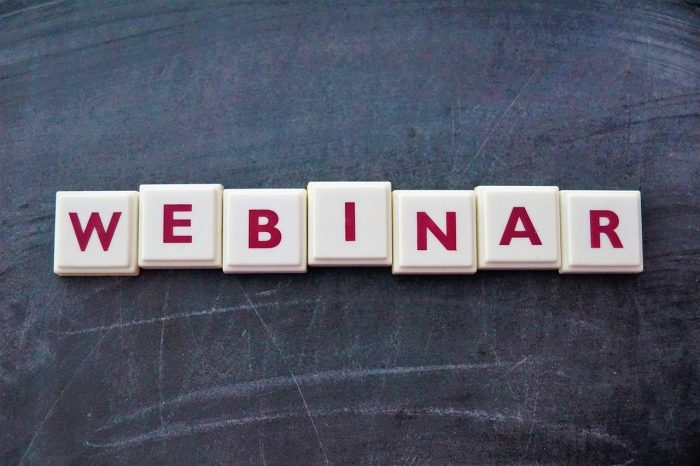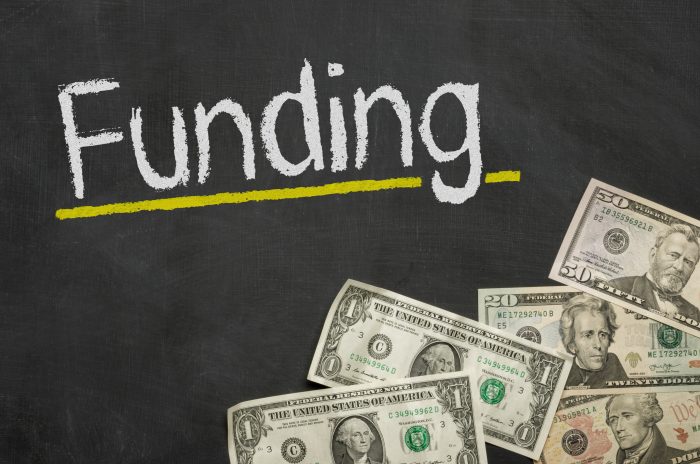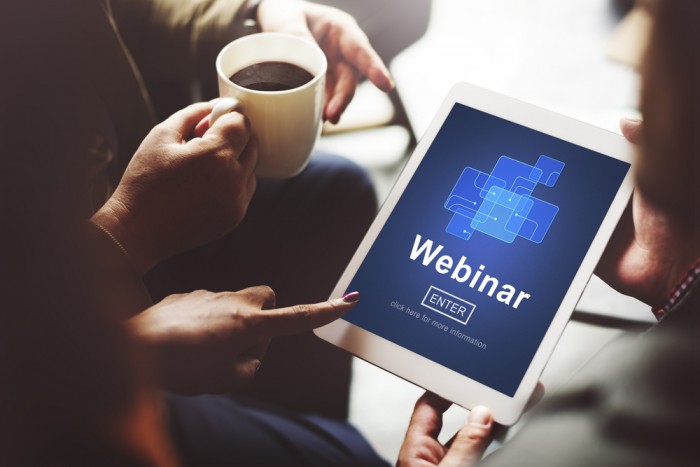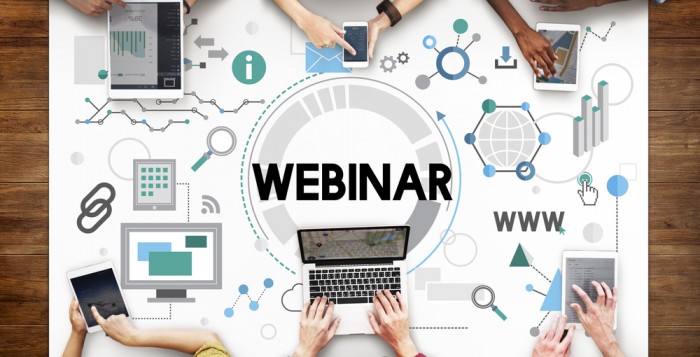
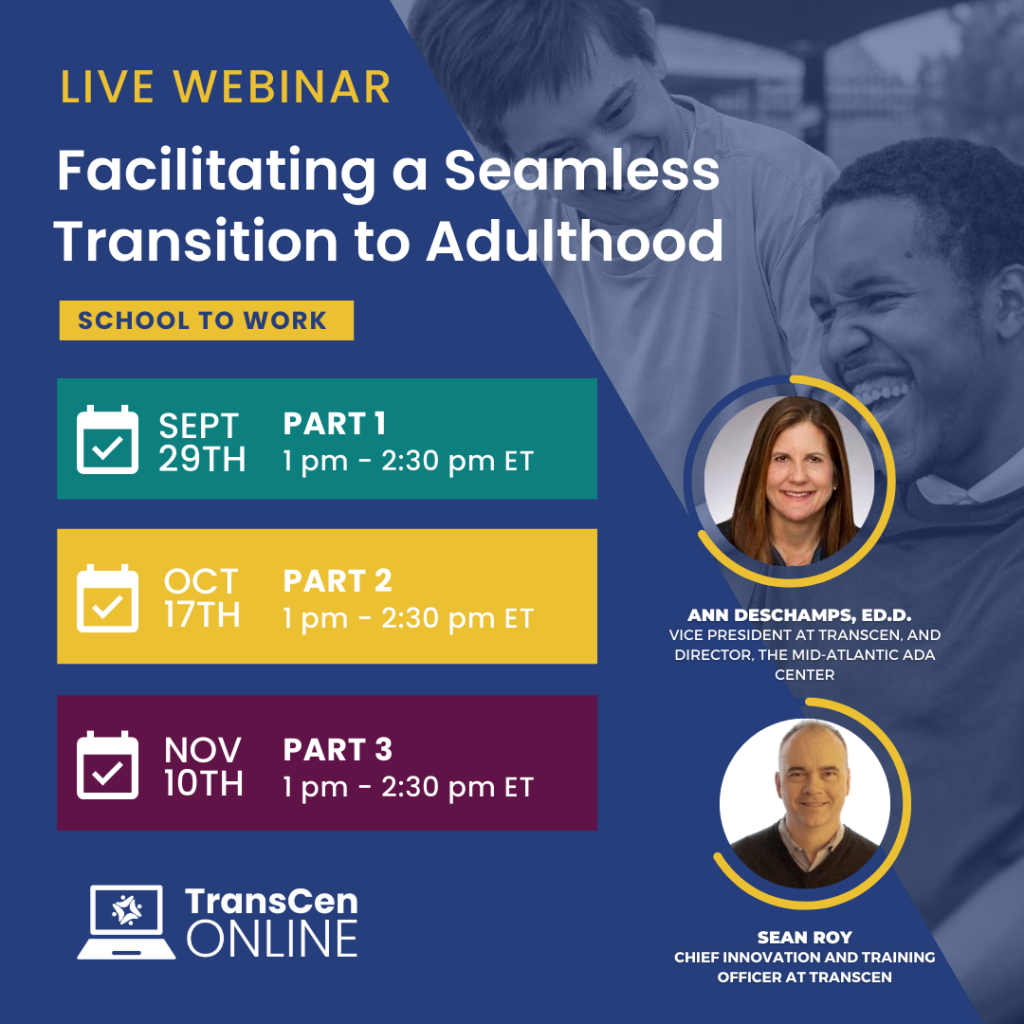

Facilitating a Seamless Transition to Adulthood: Practical Information You Can Use Right Now!
Part 1 Date: September 29, 2022, 1:00 pm – 2:30 pm ET
Part 2 Date: October 17, 2022, 1:00 pm – 2:30 pm ET
Part 3 Date: November 10, 2022, 1:00 pm – 2:30 pm ET
There is a job for everyone who wants one, regardless of disability, need for support, or economic vitality of their community. The culmination of public education for all youth with disabilities should be productive and meaningful careers — not just for some youth, or most youth, but all youth.
This 3-part webinar series will highlight key strategies to establish interagency teams, clarify roles and responsibilities, improve engagement of families and employers, and facilitate individualized work experiences in the community.
Special educators and administrators, Vocational Rehabilitation counselors, employment specialists, advocates and families are encouraged to attend to learn how to apply the tenants of seamless transition and promote successful futures for people with disabilities. Participants will receive access a set of tools essential to effective implementation of meaningful work experiences.
REGISTER FOR WEBINAR
Seeking CEUs?
Are you a Certified Rehabilitation Counselor or Certified Employment Support Professional seeking CEUs to renew your certification?
Then look no further! Our webinars closely align with both CESP and CRCC continuing education requirements.
Certificate of Completion for CEU self-submission is available through TransCen Online!










